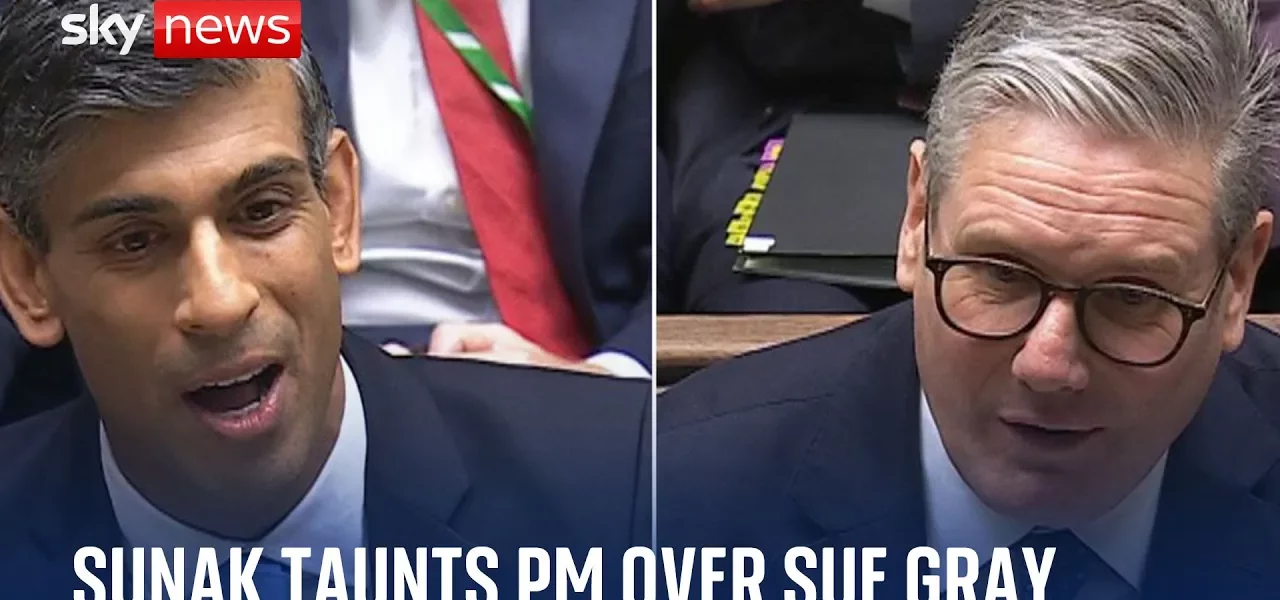Government’s Anticipated Changes to Employment Law and Economic Policies

This article delves into the anticipated changes to employment law announced by the UK government, exploring the implications for workers’ rights, economic growth, and national security amidst a backdrop of parliamentary debate.
Introduction
The UK government is set to unveil significant changes to employment law, marking what many are calling the biggest upgrade of workers’ rights in a generation. This move comes in response to pressing issues raised during parliamentary discussions, particularly surrounding the economic challenges faced by the nation and the promises made by the Prime Minister regarding tax commitments. The proposed legislation aims to enhance the dignity of workers while simultaneously fostering economic growth, a dual objective that the previous government struggled to achieve over its 14-year tenure. This article will explore the key elements of the proposed changes, the responses from opposition leaders, and the broader implications for the workforce and economy.
The Proposed Changes to Employment Law
The government’s forthcoming bill is expected to introduce several key enhancements to employment law, which may include:
- Increased protections for workers against unfair dismissal.
- Enhanced rights to flexible working arrangements.
- Strengthened provisions for maternity and paternity leave.
- Improved minimum wage regulations to ensure fair compensation.
These changes aim to provide workers with a sense of dignity and security in their employment, addressing long-standing issues that have been highlighted by various advocacy groups.
Economic Implications of Employment Law Changes
One of the central themes of the parliamentary debate was the link between workers’ rights and economic growth. The Prime Minister emphasized that improving workers’ rights will not only uplift the workforce but also contribute to a stronger economy. Key points of discussion included:
Investment in Job Creation
Recent investments have been highlighted as a positive indicator of economic recovery:
- £8 billion investment from Amazon aimed at job creation across the UK.
- £10 billion from Blackstone to enhance job opportunities in the Northeast.
- £22 billion earmarked for carbon capture initiatives, creating jobs in the energy sector.
- £500 million allocated for public transport improvements in Northern Ireland.
Tax Commitments and Economic Stability
The Prime Minister reiterated his commitment to not raising income tax, National Insurance, or VAT for working individuals. This pledge is crucial for maintaining economic confidence among both employees and employers:
- Assurance that National Insurance contributions will remain stable.
- Focus on policies that promote investment rather than additional taxation.
This approach aims to stabilize the economy, which has faced challenges in recent years, including the aftermath of the previous government’s fiscal policies.
Opposition Response and Critique
The opposition has been vocal in its critique of the government’s plans, questioning the sincerity of the Prime Minister’s commitments and the effectiveness of proposed policies:
Concerns Over Economic Management
Critics argue that the current government has not adequately addressed pressing economic issues, including:
- Rising borrowing costs affecting businesses.
- Stalling economic growth amidst global uncertainties.
- Inadequate responses to the challenges of national security.
Call for Transparency and Accountability
Opposition leaders have urged the government to provide clarity regarding its fiscal strategies, particularly in relation to the potential for increasing employer National Insurance contributions. They emphasize the need for:
- Clear communication of policy intentions to the public.
- Accountability for previous economic mismanagement.
National Security and Legislative Priorities
Alongside discussions of employment law, significant attention was paid to national security, particularly in light of recent statements from MI5 regarding evolving threats to the UK. The Prime Minister confirmed that the forthcoming terrorism bill will provide security services with the necessary powers to address these challenges, reflecting a commitment to public safety.
Collaborative Efforts in National Security
There was a notable emphasis on bipartisan support for national security initiatives, which highlights the importance of a united front in addressing complex threats.
Conclusion
In summary, the government’s anticipated changes to employment law represent a pivotal moment for workers’ rights in the UK, aiming to restore dignity and promote economic growth. While the opposition raises valid concerns regarding the implementation and effectiveness of these policies, the government’s investment commitments and focus on national security are crucial factors in shaping the future landscape of the UK economy. As these changes unfold, it will be essential for all stakeholders to remain engaged in the dialogue, ensuring that the needs of workers and the economy are met. For further insights on employment law and economic policies, explore our related articles.
“`




